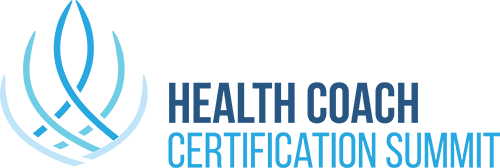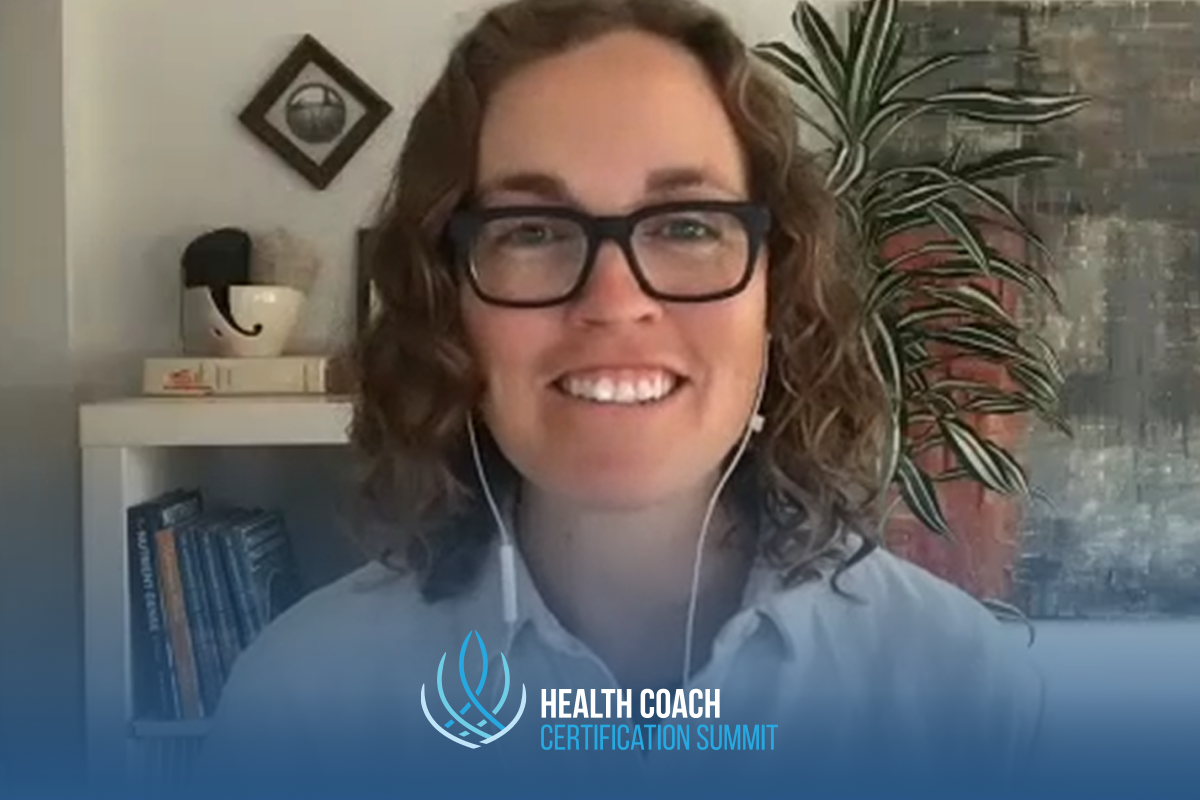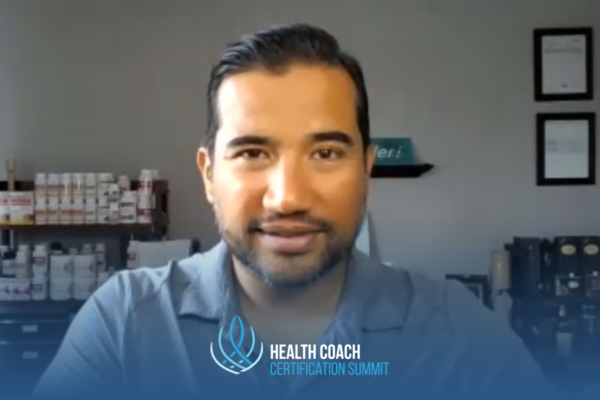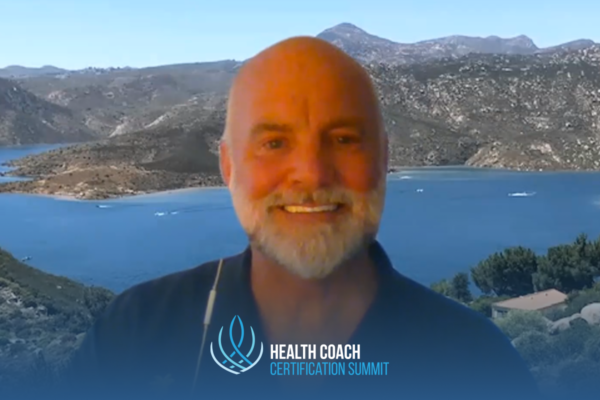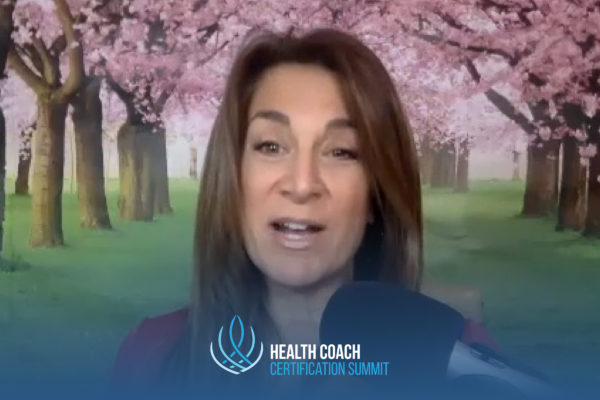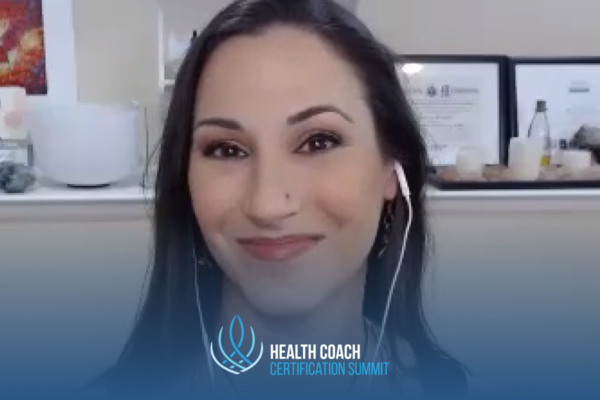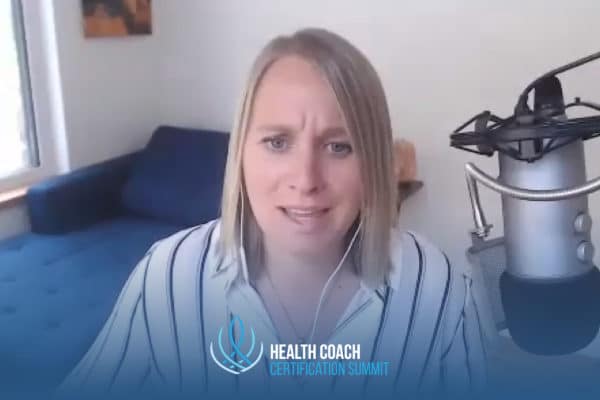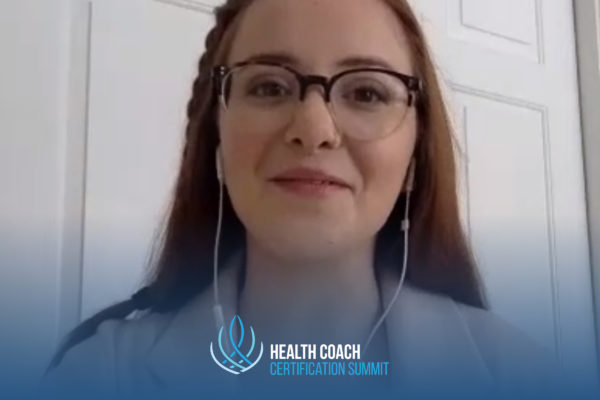Join the discussion below
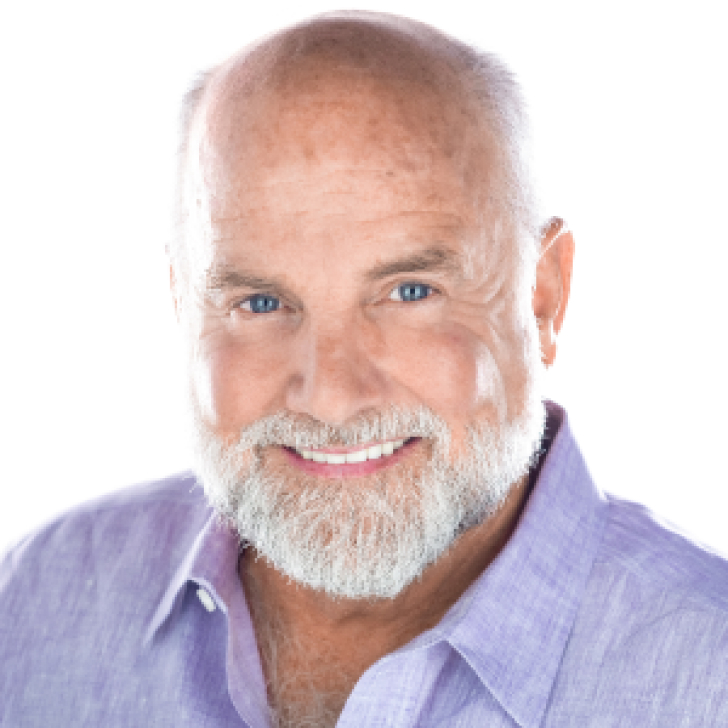
Reed Davis, Triple-Board Certified Holistic Health Practitioner (HHP) and Certified Nutritional Therapist (CNT), is an expert in functional lab testing and holistic lifestyle medicine. He is the Founder of Functional Diagnostic Nutrition® (FDN) and the FDN Certification Course with over 3000 graduates in 50 countries. Reed served as the Health... Read More
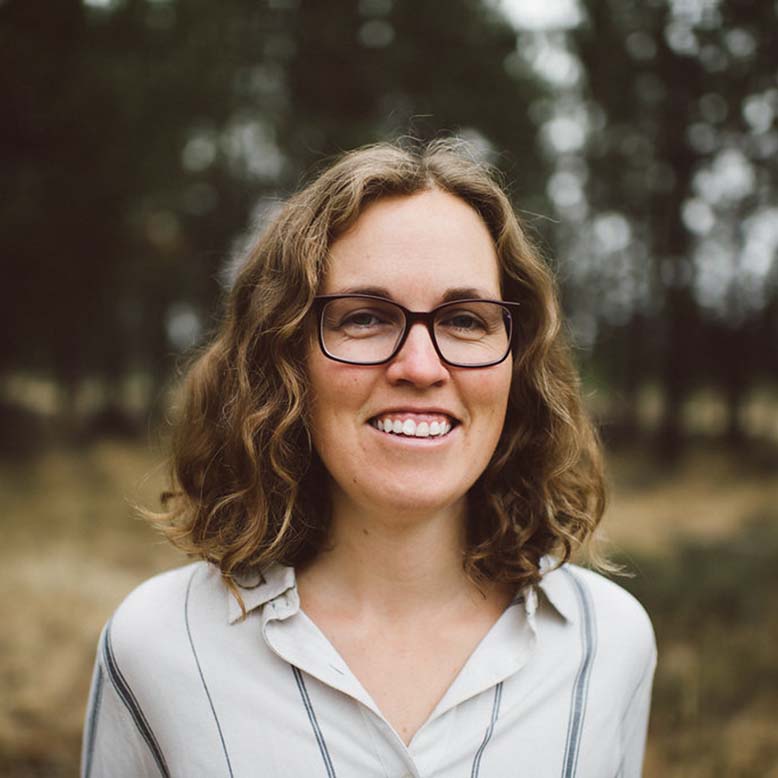
Mickey Trescott, FNTP prides herself in finding creative solutions to preparing, cooking, and succeeding on allergen-free diets. She is a Functional Nutritional Therapy Practitioner and author of the best-selling guide to the Autoimmune Protocol, The Autoimmune Paleo Cookbook. With her partner Angie Alt, she co-authored The Autoimmune Wellness Handbook, an... Read More
AIP Certified Coach Practitioner Training Program is an advanced training that teaches practitioners the science and implementation of the Autoimmune Protocol, a science-based diet and lifestyle program that promotes healing and often enhances medical treatment for those with autoimmune disease.
Related Topics
Autoimmune Disease, Autoimmune Protocol, Bone Broth, Celiac Disease, Chronic Illness, Cold Water Fatty Fish, Connection, Elimination Diet, Gut Health, Hashimotos Thyroiditis, Health Coaching, Immune System, Lifestyle Components, Microbial Diversity, Movement, Nutrient Density, Organ Meats, Probiotic Foods, Science-based Protocol, Sleep, Stress ManagementReed Davis, HHP, FDN-P, CMTA, CNT
Welcome back ladies and gentlemen. Today I’m so excited to introduce Mickey Trescott, NTP Trescott, FNTP. She prides herself in finding creative solutions to preparing, cooking, and succeeding on allergen-free diets. It’s really critical these days, of course. She’s a functional nutritional therapy practitioner and author of the bestselling guide to the Autoimmune Protocol, The Autoimmune Paleo Cookbook. With her partner Angie Alt she coauthored the Autoimmune Wellness Handbook, and that’s an award-winning guide that teaches a whole lifestyle approach to healing from autoimmune disease. Her newest release, The Nutrient Dense Kitchen focuses on nutrient density, critical, of course, it’s also an often overlooked aspect to deep healing with food. Now in 2012, Mickey Trescott, NTP founded autoimmunewellness.com. That’s a website and social media channels, serving millions of readers annually with recipes and resources for living well with chronic illness, with Angie Alt again, and Sarah Ballantyne, who we know pretty well. She cocreated, and co-teaches the AIP certified coach practitioner training program. She’s going to tell us all about that. It’s an advanced training for practitioners across the spectrum of both natural and conventional healthcare. I am really, really excited to bring you on Mickey Trescott, NTP. Thanks for being here. Tell us a little bit about your background and self. Things I left out!
Mickey Trescott, NTP
Thanks so much, Reed. I’m really excited to be here. Anything health coaching, I’m all in. If anyone’s familiar with me, you guys know how much I am really trying to be supportive of the movement of health coaches to bridge the gap right now and help solve our healthcare crisis. We’re in a lot of trouble. So yeah, thanks so much for having me. I have a lot of personal experience with autoimmune disease. So the short story is that’s how I got in here. Like a lot of healers, our personal journeys kind of get us interested in helping others walk a similar path. So about a decade ago, I was diagnosed with two autoimmune diseases after suffering for about a year with a lot of unexplained symptoms. So this is really common with the specific autoimmune disease I have, which is Hashimoto’s thyroiditis. It is the most common autoimmune disease. It is critically underdiagnosed in young women, such as myself. I was 26 at the time and dismissed by doctor after doctor. It took me six doctors to actually get that antibody test.
Then when it came back positive, I was told that there was no treatment for me since my thyroid levels were normal. So through that journey, I also got diagnosed with celiac disease and even after both diagnoses, I continued to have a health crisis that left me bedridden, without my job, without any tools, the conventional system had nothing for me. I was out of money and really depressed and exhausted. So I started to do my own research. I had a background as a personal chef, I had been vegan for a very long time. I had a little idea that maybe the way that I was eating was not supporting my best health. So that’s kind of the foundation of where I came at learning for myself to figure out maybe some pieces to the puzzle to see how I could get well, because I didn’t have anyone helping me out.
So through that, I discovered the autoimmune protocol and back then it was not well known. There were a few other people that I found on the internet who were trying it themselves for their own autoimmune diseases. So, Sarah Ballantyne was one of them. She was home with her kids and I connected with her through her blog and she was sharing her experiences. And Angie Alt, my now partner at Autoimmune Wellness and with AIP certified coach with Sarah was also trying AIP for complications due to her celiac. So all of us connected and were experimenting on ourselves because to that point, we didn’t know anybody. There were no stories yet of people who had tried this and my experience healing from a pretty serious health crisis gave me the curiosity to maybe totally shift my career. So I was really interested in cooking, but then I started eating completely different. So I was thinking, how could I combine these passions of cooking and healing together to help other people? And that’s kind of where this all began for me.
Reed Davis, HHP, FDN-P, CMTA, CNT
That’s remarkable. You really got hit with the double whammy there, with the Hashimoto’s and celiac.
Mickey Trescott, NTP
Yeah.
Reed Davis, HHP, FDN-P, CMTA, CNT
I know it’s actually pretty common. So, then you must have worked very hard and it probably took you a while. You didn’t say how long but things like this don’t generally happen overnight. Tell us more, feel free to share as much information as you want. We want to know what is the autoimmune protocol or AIP? And how did you come about? How did that evolve?
Mickey Trescott, NTP
Yeah, so the autoimmune protocol, I noticed it first in Robb Wolf’s book, where he just mentioned, people will do paleo for all of these reasons that he was outlining in his book. But then he said, “If you have an autoimmune disease, here’s a bunch of other foods.” And he just listed a list of foods that were additional things like eggs and dairy and tomatoes that maybe some people include in a paleo or primal approach. A light bulb went off for me because I had been researching diet and autoimmune disease. What nutrients the immune system needs, kind of getting into that. And I thought, “Huh, that’s interesting.” So, I connected with Sarah. Sarah has a background in medical biophysics. She’s a PhD level researcher, and she was picking up the same clue phone, right?
Reed Davis, HHP, FDN-P, CMTA, CNT
Yeah.
Mickey Trescott, NTP
She was kind of like, “I wonder why this works.” So Sarah really refined the autoimmune protocol from those string of words that—there were a few people around the same time who were putting out the idea that maybe they were clinicians or researchers and saying, “Hey, there’s something here in the literature that indicates that maybe these foods are not right for people that are having an inflammatory reaction in the gut.” So Sarah took that and formed it into a protocol that we know it as today. So she wrote a book called The Paleo Approach. In the book, she references over 2000 scientific papers, detailing each food and its merits on including or excluding from an elimination diet, specifically looking at nutrient density and also the gut, because as we know, the gut is mostly where the immune system is. It’s kind of a first line for people with autoimmune disease.
Now, especially in functional medicine community, this is not a new idea, but about 10 years ago, it was a pretty radical idea that people were thinking, “Maybe there are specific foods that are not right.” So the autoimmune protocol calls for eliminating foods like grains, beans, legumes, dairy, eggs, nuts, seeds, and nightshades, as well as food chemicals and stabilizers and non-nutritive sweeteners. So basically that’s a very broad category, but it includes any food or ingredient that is derived from one of those categories. So coffee is eliminated, not because of the caffeine, but because it is a seed. Spices, even things like cracked pepper. A lot of people wonder, “Is anyone sensitive to that?” And I can tell you, in my seven years of being a health coach, I have found people that are in fact sensitive to pepper. So, things that could potentially cause reaction are eliminated, but just as important as the eliminations are the additions.
I think this is where the autoimmune protocol is very different from a lot of other elimination diets in that it places an equal importance in the things that replace all of the elimination. So these are gonna be things that support nutrient density and increase nutrient density and heal the gut. So they’re going to be things like bone broth, which is going to have lots of collagen and gelatin and all that great stuff for healing the gut and the skin. It’s going to have probiotic foods, so it’s going to be rich in fermented foods and things like kombucha. It’s going to be rich in things like organ meats and cold water fatty fish, things that a lot of people don’t really eat.
They think that they can do the autoimmune protocol perhaps without eating meat or seafood. It doesn’t really work as effectively when we’re not increasing the intake of cold water fatty fish and shellfish that have a rich supply of nutrients that are critically important for the immune system. Same things with those organ meats. For me, as a celiac and with Hashimoto’s, I’ve got problems with iron. I need to eat some really iron rich foods that my body is going to absorb. So that was really impactful for me. Then there are also lifestyle components. So it’s not just about food. A lot of people get in and they start the diet and they start with food, but then they open it up to expand, to start thinking about sleep, stress management, movement and connection, which there is research showing how this impacts our immune systems and why making some shifts in our lifestyle can actually help us live well with autoimmune disease. So, that’s kind of the big picture of the autoimmune protocol.
Reed Davis, HHP, FDN-P, CMTA, CNT
It’s remarkable that you’ve done so much work and that you know so much. Health coaches want to know too, ’cause they’re gonna have clients come to them that have tried this and tried that. You start talking about eliminating foods and they, “Oh, I’ve done that before and tried it already.” What’s the science behind it? Is there some kind of testing? What would you say is—I know it’s science based, but how would you explain that?
Mickey Trescott, NTP
Yeah, so originally—now we actually have efficacy studies for the autoimmune protocol in specific populations with specific autoimmune diseases, which we didn’t have when AIP was in its infancy seven or eight years ago. But at that time, the research was showing specific foods, how they affect the gut lining, how they affect the microbial diversity in the gut, and how different nutrients support the immune system. How all these lifestyle factors. So that’s really where Sarah’s work in laying the foundation of this protocol and really making it a science based protocol. Not picking things out of a hat or just going by things that are anecdotally supportive. ‘Cause we know in natural healthcare and functional medicine, a lot of things haven’t been proven by science, but we know they work because you’ve had clients or patients that have tried something and it’s effective. So you want to keep using that with your clients, right? You want to help people get well.
Reed Davis, HHP, FDN-P, CMTA, CNT
Yeah.
Mickey Trescott, NTP
Sarah really wanted to make the foundation of the autoimmune protocol really based in science. I think the explosion in popularity, not only among healthcare practitioners, but even the conventional practitioners, and the collaboration between doctors, has come out of that because a lot of doctors who are conventionally trained or even just starting to think about holistic or functional medicine are really wary of something that is not grounded in science. So, I think that’s where we were able to partner with doctors to get these studies off the ground because they saw the scientific validity or merit of at least looking into it. And, yeah. So it’s out there, but we have a lot to learn and that’s what I’m really excited about for all of these studies moving forward is just all the different layers and things that we’re gonna learn. The AIP is a living thing. It’s not set in stone. So there have been updates to the protocol, especially the reintroduction protocol as Angie and I have had our program, just kind of all the experience that we’re having coaching. Now, thousands of people through AIP, we’ve learned a lot of different things. Then also in the research side, the research is always changing and the merits of different foods can always be updated. So we continue to do that as time goes on.
Reed Davis, HHP, FDN-P, CMTA, CNT
It’s amazing, again, that you have such great answers to these questions. ‘Cause the audience, they are kind of nerdy, some of them. They all want to help people. A lot of them are working on their own problems. Let me see, besides the Hashimoto’s, what other research—has there been any research on any of the other kind of…? It for any autoimmune condition or have you done studies on specific types other than that?
Mickey Trescott, NTP
Yeah. So about four years ago now, Angie and I were contacted through the contact form on our blog, Autoimmune Wellness, by a researcher at Scripps, San Diego. She’s a gastroenterologist, a researcher MD, who had a patient that came to her wanting to use the autoimmune protocol. They had some pretty serious IBD and they were wondering if there was anything they could do before they resorted to the normal treatment of drugs and surgery. And this doctor had never heard of AIP, but she said, “Sure, you can have a month. Then we’ll check in—we’ll do a colonoscopy.” So this patient did AIP on their own from the information on our website. They weren’t coached by anyone, but they saw a complete turnaround in their symptoms.
When they went back to the doctor, she saw no sign of disease in their colon and was kind of like, “Hey, what did you do? I want to know more about this because—has anybody looked into this?” So they sent the doctor to our website, she contacted us and she said, “Hey, I’d love to run a study through Scripps to test the efficacy of this autoimmune protocol. Will you guys collaborate with us to provide health coaching and consultation in how to do this? ‘Cause obviously you guys have been coaching people on how to do this. And we’d like to put together a study.” And of course we were like, “Yes, just tell us what you want us to do.” We were fantastically thrilled that she even reached out to us. So this was the first IBD study they ended up doing in 2017. Then there have been two sub studies that have come out since, and I mean, the results were astonishing. They took people that had active IBD for an average of 19 years. So these were not newly diagnosed, barely sick people. These were people who had been suffering for a very long time. Many of them had been failed on biologic treatments.
Some of them had had surgery and other complications and within six weeks—so the way the study was designed, there was a six week transition where every week they took out two categories of food and then there was a six week elimination, fully compliant with all the foods removed—and so after the first six weeks, they saw 73%, rate of clinical remission. Then every patient that had reached remission maintained it through the autoimmune protocol phase. So, it was great, and we were not surprised by the results because we coach people with this every day. We’ve seen, especially specifically with IBD and autoimmune diseases that affect the gut are the quickest to respond to this type of treatment. It may seem obvious to people who think, “Yes, you’re putting food in your system. Of course that works.” But it was great to see that show in the study. Since then we have partnered with another doctor to run a study on Hashimoto’s thyroiditis. Of course, Hashimoto’s is a completely different can of worms from IBD. With this study, we were able to bring in some functional medicine testing. So some stool testing, some [inaudible]. That was really interesting.
Then also trying to see what things change across the course of changing someone’s diet and lifestyle. The shifts were different, because you’re dealing with a disease that is much more subtle, it’s much more difficult to assess the types of symptoms people are having. And so the results from that study were along the lines of what we see in our practices, which is Hashimoto’s takes a little bit longer and is a little bit trickier, but over time, the hormone levels improved and people needed less medication and the quality of life went up and the symptom burden went down. So that was really cool. Then we’ve also done an eczema and psoriasis study. Looking at the manifestation on the skin. In our practices, we’ve seen people with skin conditions take the longest to show signs. I don’t know if this is something you’ve noticed in your practice Reed, but the skin is something that is a lower priority organ for the body, right? It’s a nutrient hog and I think it really needs time.
So that was a study that we completed last year and the results will be published this year. So it’ll be really interesting to kind of see the official writeup of that one. Then hopefully we’ll be doing more in the future. We’ve got RA on the books, that’s always really popular with our audience. If there are any other doctors out there that want to try this, we’re still in the efficacy study phase. So for people listening that are science nerds, these are not clinical trials, but they are the start. This is how you get the attention and the funding for clinical trials. You figure out how to compare different research. We can look at what Dr. Terry Wahls is doing now, these seeds she planted 10 years ago. So that’s what we’re trying to do now is continue to build this body of research and learn the different intricacies of the different diseases and how we can help as many people as possible.
Reed Davis, HHP, FDN-P, CMTA, CNT
I’m glad you mentioned Terry. She’s another guest, she’s a co guest on this event and people will be looking forward to hearing her story. She had her own, like you, she started with basically trying to conquer her own problem. That’s actually what gets a lot of people into coaching, I think. Have you noticed that too? Most health coaches had a problem of their own?
Mickey Trescott, NTP
Oh yeah. Yeah. I think specifically with auto immune disease, it takes us an average of five years to get diagnosed, which is like—that statistic is a disaster, but that’s the state of the medical system right now. So a lot of people with autoimmune disease suffer going from doctor to doctor, not truly being heard, being dismissed, told that perhaps they’re depressed. When a coach has that personal experience, you know how to navigate that emotionally, you know how to navigate that system and really how to support your clients in a way that a lot of them have never truly had someone listen, even family members. We don’t really have an accepted toolbox, or a way of dealing with someone in our life.
Even if it’s a loved one that has a chronic illness, right? So this explosion of people getting into health coaching and wanting to help other people most of the time, it’s just saying, “Hey, I have hard one this experience and all of this background that I have in healing. I want to share that with other people.” Even if that just means listening and validating their experience and saying, “Yeah, I went through that too.” It’s just transformative because then people go, “I’m not alone. I can advocate for myself and I can actually figure these things out and I can have some hope.” That’s really cool. I love it.
Reed Davis, HHP, FDN-P, CMTA, CNT
Yeah, I love it too. That’s what health coaches do, they seem to resonate with people and attract people that have similar type of problems or they’re similar to them in some way. Usually it’s a condition, but not always. It’s another part of the interview that I wanted to touch base with you on is that sort of the professional. What separates us from the hobbyist and these kinds of things? But before I do ask that, give us some ideas what it’s like to work with a person. Are you running a lot of labs for something? What does coaching a client or patient through the autoimmune protocol look like?
Mickey Trescott, NTP
Yeah, so the autoimmune protocol is really, really clarifying for a lot of issues that people have. And because of that, we actually recommend, and we teach for people to try diet and lifestyle before they move on to advanced testing. This is for a lot of reasons, but mostly because so many things are resolved just with diet and lifestyle, that if you start to go looking for things too soon, you’re gonna find everything, right? If you have a client walk into you in the street and you’re a functional medicine practitioner and you run labs—I’m not a licensed practitioner, so I don’t run labs—but I have worked in partnership collaboration with people who—and especially researchers who say they have people come in that have not done any dietary change and they do all these tests and everything comes back as a problem. They’ve got all these gut issues. They’ve got all these adrenal issues.
They’ve got their thyroid hormones all out of whack. So if they go to work, treating all of those issues at the same time that the person is changing their diet, maybe changing their lifestyle, it is just gonna be a really confusing process that doesn’t have a lot of direction. So when someone comes to the autoimmune protocol, especially when they come to a coach, the AIP is pretty complex and it’s very customizable. So there is kind of a by the book way that people can do themselves. Hundreds of thousands, if not millions of people have tried to do this themselves. It’s part of the reason why we have a website devoted to putting the information out there for free, because we want everyone to access it. But also they’ll take one read through what the protocol entails and they’ll recognize this is hard. If you’re going to do it yourself, you need to have a lot of time. You’ve got to do a lot of research. You got to find all these new foods, you got to learn how to cook a bunch of things you’ve never cooked before.
You’ve got to research the answers to troubleshooting problems or figure out how to get your spouse or kids on board. Solving these complex problems is specifically what a coach does. So, when you transition to the autoimmune protocol with a coach, the coach can take your health history and they can listen to your family situation and they can help you identify the ways to customize that might accelerate your healing journey. They might help you identify some lifestyle things, like maybe actually the diet isn’t the biggest trigger in your life. Maybe it’s actually a sleep issue or a stress management issue, or a job that you’re working 60 hours a week and you’re not managing your stress. I can’t tell you how many times I’ve seen people come to me wanting to work on the diet, but then actually learning that there’s something in their life that’s bigger than what they’re eating. If that doesn’t get addressed, nothing they eat is gonna help them. So coaches are really critical in the customization, in the personalization and then in the implementation, because implementing is hard, especially with all the complex factors.
Some people might have the budget to go to whole foods and buy all the organic food. Most people don’t, most people have to figure out how to source high quality foods for a good price. That’s what a coach can do. A lot of people don’t know how to cook a sweet potato. That’s what a coach can do. So when they come to AIP, they clarify, they weed out all of those—maybe the seemingly little things that can really add up. The slightly high blood pressure, the sleep disturbances, the fatigue, and then the things that are left over, that’s for the doctor. So then they can go to a doctor and they can say, “Hey, I’m having this specific problem.” And the doctor is no longer looking for a needle in the haystack. The doctor says, “Oh, we need to run an organic acids because this looks like it could be X, Y, or Z.” And then they treat that. Then the person knows which diet and lifestyle is most supportive of their health from working with a health coach, and then they go to the doctor or functional medicine practitioner—whoever is able to test and treat for whatever issue they have. They get that treatment. And I’ll tell you what, Reed, the doctor is happy too. Because the doctor is not getting calls about, “How do I cook the sweet potato? Hey, doctor, you told me to do this diet. And I don’t know how to cook this” or “I don’t know where to buy this food.” That’s a health coaches’ job. So I think that bridging that gap is specifically really helpful in helping people navigate this chronic illness epidemic that we have.
Reed Davis, HHP, FDN-P, CMTA, CNT
You know, you’re right on target. First of all, I had a hard time with sweet potatoes myself a while ago. I had to learn to use that part of the kitchen, there’s a door with knobs over it, and I wasn’t sure what that thing was for all these years, but it’s really good for us!
Mickey Trescott, NTP
Yepp!
Reed Davis, HHP, FDN-P, CMTA, CNT
You know, I’m a grill man. I’m a grill man.
Mickey Trescott, NTP
Okay.
Reed Davis, HHP, FDN-P, CMTA, CNT
I can use the stove top really good. I can saute, I can do—
Mickey Trescott, NTP
Yeah.
Reed Davis, HHP, FDN-P, CMTA, CNT
But yeah, the oven, that was a challenge. But that’s what health coaches do. We learn to walk and talk and live a certain lifestyle. And we start to budget our own budgets and money so that we can afford the better foods. And I’m eating as much organic as possible. Not because I think it has so much more nutrients in it, but because it’s at least free of most of the insecticides, rodenticides, and herbicides, and things. So you’re at least getting fairly clean food. Of course you can supplement for what’s missing. But I love that you mentioned working with physicians, because part of this event, Mickey Trescott, NTP, is defining our backyard and realizing when is collaboration important? Like what you said was pretty cool. Look, you’re the health coach do what a good health coach does. Some of the more medical procedures or diagnosis and things, that’s how we should actually be working together. Did you want to address that a little bit about collaboration?
Mickey Trescott, NTP
Yeah. Yeah. I love talking about collaboration because having now taught close to 500 people in AIP certified coach, it’s been really beautiful to see the differences. We opened up this program, not just to health coaches. So we do have a lot of health coaches, but we also have had doctors. So medical doctors, naturopathic doctors, we’ve had physical therapists, we’ve had fitness professionals, we’ve had yoga teachers. We’ve had social workers. We’ve had mental health providers. We’ve had acupuncturists and herbalists. So we have this really diverse group that basically what we’re teaching them is this is not a one size fits all way how to be a health coach. This is a way that you can incorporate this science based information in whatever you do. So a physical therapist is going to have an understanding of how an autoimmune body is operating, maybe how this body is operating differently from a healthy person and how their tissue might be a little different and how they can actually coach that person effectively.
For a doctor, honestly, the best education that they’re getting is “Whoa, this implementation stuff is a lot of work. I might need a health coach on my team.” And actually most of the doctors that we’ve had come through are taking the program with health coaches and nutritionists. We’ve even had RDs and different types of nutritionists in our program because the doctors recognize that in order to do their work most effectively and actually most accurately—when they have a client that has the one thing that needs to be treated and they can treat it successfully, I mean, that feels great to them, right? Then they have someone on their staff that can help walk that person through whatever implementation. I mean, everybody wins. So seeing the collaboration has been really beautiful, seeing the collaboration through the worldwide network.
So we’ve got translations going in Spanish and French, and there are groups of practitioners in other countries who are building their practices through connections that they’ve made in the group and putting out resources. It’s really, really cool. So as a health coach, I encourage other health coaches not to try and be doctors, to really respect the expertise and the authority and what doctors have learned. So one criticism I have from some of the natural health movement is people who criticize all doctors. There are a lot of bad doctors and there’s a lot of problems in medicine, but there also are a lot of great doctors who are waking up to this stuff and who want to partner and collaborate and be a part of a solution. So I really believe, especially through collaboration with these studies—the first study, IBD study, was with a conventional doctor from Scripps.
She had no idea about the world of functional medicine. She had no idea about things like bone broth, but through being open and gentle and fostering a relationship with her, a lot of her colleagues are now interested. So that’s how we build a movement, not by cutting these ties and saying, “We know better, even though we don’t have the legal authority to do what you do.” It’s by building the bridge and by listening to them and seeing what their struggles are in the medical system and how we can both best support them. Then in between there are so many layers, there are naturopathic doctors who are operating completely different. There are MDs who have functional medicine training, there are RNs who are able to practice and prescribe in certain States. And PAs, they’re layering things with functional medicine and it’s all very cool, but seeing it all come together in a group of people who really believe in accessing the healing potential of diet and lifestyle as a foundation of whatever they do is great.
So I would encourage everyone to just think, 10 years ago, it was so different. I was never told by anyone, “Oh, my doctor told me about this protocol…” But now just in the public side of what I do on Instagram or Facebook or through the email and the blog, people are writing us saying, “Hey, my conventional doctor saw the IBD study and they told me to do this diet.” Like, this is how they’re hearing about it. So what we’re doing and the collaboration, the relationships we’re building are filtering through to practitioners who maybe never would have even considered had there not been some evidence and so much awareness about it. So yeah, love the collaboration and we welcome any type of practitioner who wants to work with us and learn more.
Reed Davis, HHP, FDN-P, CMTA, CNT
Yeah. I’m so glad that we’re defining this. ‘Cause I think that’s one of the things people in coaching—health coaching, leadership area—we need to be helping to define the backyard of a health coach and be able to work up to that point where it is a medical diagnosis. Personally, and all my health coaches, they don’t want any parts of medical diagnosis or treatment of a specific thing. That’s the realm of medicine and we give physicians, licensed physicians, who are licensed to do these things, a complete monopoly. Yet we are often the sort of senior partner in—because the person that—the client often comes to us first. [Laughing] Asking, “Should I do what my doctor said? Like, take this medication?” [Laughing] I hate to be put in that spot, but I always have to say, “Look in this situation, I’m your go-to person for anything lifestyle. If you want to know more about diet and rest and exercise and reducing stress and even taking supplements, I’m your guy. I can help build health. I’m here to build health and help you build health, but when it comes to treating a disease, if you really have one that is the backyard of a physician.” There’s an intelligent way to navigate that space, but there is a clear line. I don’t practice medicine by any stretch.
Mickey Trescott, NTP
Yeah. I think it’s something that a lot of health coaches—I know in my early days—you get really excited because you see the potential of what can be done and how people can reverse a lot of things that they normally would go to a doctor for and take a bunch of medications. So it can be tempting to say, “We have all the tools we need.” But we don’t. Sometimes we get a client as far as we can, and then we say, “You know what? That issue looks to me like SIBO.” I keep up on the research. I like to know how to interpret the test, but I’m not practicing medicine. I’m helping my client advocate for themselves, understand the different issues, the symptoms, how it may be linked to something going on in their body, and coach them on how to talk to their doctor who may or may not know what they’re dealing with. But they can have an educated discussion when they go into that doctor’s office. I’ve had conventional providers order tests for my clients that they knew nothing about, but because the client presented a good case about, “Hey doc, I’m experiencing X, Y, and Z. Here’s some information on SIBO.” And because of insurance—I mean, we’re not even gonna talk about the medical system—but because of insurance, for some people that’s the only way they have access to treatment, is through a conventional doctor. I’ve had them convince doctors to do tests and to ask them about treatments that maybe they’d never prescribe before, but proved effective for their situation just because they open that line of communication and because the coaching.
So I’m with you. A lot of our clients are gonna come to us because we are the ones that spend all the time. We’re the ones that are truly listening. When they go to the doctor, they get 5 or 10 minutes. If they go in there educated, that 5 to 10 minutes can be so much more productive. If you’re going to see an endocrinologist and they need to explain to you what your thyroid does, you’re not going to get anything out of that appointment. But if you go in there and you say, “Hey doc, I think I have autoimmune disease. Can you test my antibodies?” That’s a very different appointment. And that’s how I got diagnosed, six doctors in, I went, “I think there is an autoimmune disease going on.” And I went into my doctor and I point blank said, “Hey, I want antibodies to be tested.” So sometimes that advocacy is really important.
Reed Davis, HHP, FDN-P, CMTA, CNT
Yeah, absolutely. I’m with you. We started this—I started in 1999, over 20 years ago doing this and back then physicians did poo poo, just totally flat across the board, like “That’s all a bunch of garbage.” We’re talking about building health and looking upstream for what’s really wrong and not just treating the symptoms and not just managing disease, but actually repairing, rebuilding, restoring normal function, bringing homeostasis back. Teaching people to live differently. I was in a chiropractic office back then and I realized really quickly—I was a nutritional therapist and personal trainer—I just would tell people, “Look, it’s not what you do in the doctor’s office that matters. It’s what you do in between visits, and hopefully one day you won’t need any visits.” That was always my goal. You don’t—we can sort of get you through this.
I’ve always said, we’re building that bridge up to where the medical backyard starts, but we own that bridge as health coaches. I actually created a direct to consumer lab testing program just for my graduates. So my graduates are so well trained in the lab work, the anatomy, the physiology, the biochemistry, how to interpret the labs, and how to apply it to a person, not to treat the paper. A lot—there’s another thing we have to watch out for is, “Oh, you get a lab test, you treat the paper, not the person.” You have to really know that there’s something on that paper that physicians might not be looking at it. We call it a healing opportunity. But just so you know, Mickey Trescott, NTP, we do a lot of lab work in my world and it doesn’t have to be a physician. Like you say, unless they’ve got some financial consideration, like, “I can only do what my insurance company pays for.” That’s a pretty lousy spot to be in. We probably don’t want to open up that can of worms, but yeah, it’s tough. But yeah, any health coach can run labs now if they just get with the right program. I’d like to have a chat with you sometime in the future about what labs you like to see run. And I assure you that it can all be done by health coaches through our program. And then it might empower your coaches even more. So let’s talk a bit about professionalism and health coaching. ‘Cause you and I both know, we need a few hundred thousand health coaches in this country.
Mickey Trescott, NTP
Probably more.
Reed Davis, HHP, FDN-P, CMTA, CNT
Well, you know, I’m saying—
Mickey Trescott, NTP
Yeah.
Reed Davis, HHP, FDN-P, CMTA, CNT
And they can be independent business people. You’ve alluded a bit to working with physicians maybe even in their office, which would be a good job, but if you want to really live a lifestyle where you can pursue health and kind of work when you want, and you can charge what you want and you can live a certain way, and set that example for your clients. There’s independent health coaching as well, which requires you to have an additional point. It’s not just a job. You go there at eight o’clock and you come home at 4 and you pretty much instruct clients, or your doctors patients, to what he says, diet, exercise, lifestyle, take the medication, whatever. Matter of fact, I don’t know if you know this, the only study being done right now by like governmentstudies.com, if you go there is—for health coaching—the only study I know of being done on health coaching is whether they can help medication compliance in irritable bowel disease cases. That’s not what health coaching is about.
In fact, I’m kind of disappointed to see health coaching being appropriated by standard medicine as if it’s just some little thing that, “Oh yeah, we’ve got one in our office too.” Well, that could be someone who’s just trained to teach you how to take your medication on time. So we can’t let that happen I don’t think. We need to sort of—like with your program I’m sure, these are independent people. These are people who are gonna just go out there and have their own business and work how much they want, charge the prices they want, ’cause they know it’s very valuable. You can work with a doctor to get some of the tests done maybe, but—or not, if you don’t want to—but you see what I’m saying? How do we keep it professional?
Mickey Trescott, NTP
Yeah. So I think every coach has to figure out what set up is most attractive to them. So I love coaching. I love working one-on-one with people and I’m at a point in my career when I have all these other things that I do. I speak at conferences. I write books and I teach people how to cook online and I don’t need to coach, but I do it because I love having that one-on-one interactions with people’s health journeys. I learn so much about what the greater public and what the autoimmune community needs by specifically zeroing in on the experiences of a few people that have some difficult situations. So I continue to coach, but for me, coaching is very depleting. So I recognized that I need some other things in my life that are all related. And as a health coach, you’re not limited to one-on-one work. So I would encourage people—like I have people in my program that just crush it with their practice and they’ve got their schedule lined out. One thing to know is that if you practice virtually, you get to make your own schedule, but also you might be working with people in Dubai or the Philippines, which happened to me.
When I started my practice and learning how to make your schedule, not only to fit your lifestyle, but also people all over the world, it’s a really cool opportunity, but it takes a little bit of learning to figure out. How do I connect with those people in Australia? Maybe I need to have my Australian clients first thing in the morning on Mondays or whatever. You figure out a schedule. For somebody that likes that flexibility and maybe you want to work a few days in a row and you want to take a few days off. I mean, virtual coaching is like—there’s nothing else like it. But also recognizing how you want to put together your business and if you want to make your business mostly on one-on-one coaching, which is I think what a lot of people primarily think they’re gonna do when they become a health coach, but also you could do group coaching. So all these studies that we’ve run are based on my business partner, Angie Alt, she has a group coaching program where she takes 20 people at the same time through the transition and they all support each other. So there’s multiple health coaches. There’s an online platform.
They get sent different exercises and they get cooking instruction and they get coaching on troubleshooting and everything in their group, but they do it as a group together. This is a different way where you can help more people for a lower cost and a certain amount of time investment for you as the coach. Then you could also make money writing and speaking and teaching and doing classes. I mean, of course right now we can’t do anything in person, but there will be a time when you can get in front of 10 people, 100 people or 1000 people and teach them what you know, and do public lectures and online there’s blogs and books. So there’s just so many opportunities for health coaches to share their knowledge. I bring this up, not to say that one-on-one coaching isn’t the way to do it. I love doing it. I still do it.
But for some personality types, it is really draining. I wake up in the middle of the night, thinking about my clients often. And it’s why I can only have a certain amount because I feel very invested in their journeys. I know people who just have a very seamless approach in their lifestyle and in their businesses and they can have a lot of clients and they can be effective coaches and walk a lot of people through some really challenging times at the same time. So assessing yourself and what type of business you want to run. For me, it’s a little bit ironic that I run my own business, but I love a 9 to 5 schedule. So I kind of keep that, even though I make my own schedule and make my own hours, I like to have a traditional schedule, but I know other people who do things other ways. And when you coach, especially virtually, you get to make the rules, which is really fun.
Reed Davis, HHP, FDN-P, CMTA, CNT
It’s truly emancipating to know you can write your own paycheck and live just how you want. And you can go anywhere to do it. This COVID thing barely affected any of our, I’ll say more successful health coaches, the ones who already worked from home. We already worked from home. I’ve been working from home since 2008 when I started teaching the FDN course. And it’s just been remarkable thinking of all the money you save too on commuting. You don’t even have to have pants on if you don’t want, and you can get up at three in the morning. I go to bed really early. So I often get up before the sun almost every day and I can work—and by noon, I’ve got a whole day’s work done. By noon. And I can take—that’s my backyard behind me. That’s a picture of it. [Inaudible] landscapes. That’s literally from my porch, my back porch in Southern California. So, you know, I like to play outside and you can do that. I have hobbies like gardening and motorcycle riding. You get to spend that time with your family and do that. But you mentioned an important part of health coaching, being a professional is to set your hours. You have certain appointment times. These are the hours I see my clients, it might be Tuesday, Wednesday, and Thursday or Monday, Wednesday, Thursday. You make it up from 1 to 5, and that’s your hours. You can tell clients that. The last thing you ever want to do is tell a potential client, “Call me anytime.” Say, “No, here’s my card. My hours are from 1 to 5 every day.
Mickey Trescott, NTP
Reed, yeah. Yup. That is such a big thing that we have to address in our coaching program, because I think a lot of coaches they are so eager for work, that they are like giving away everything. They are like, “Here’s my cell phone number, text me when you’re at the grocery store.” And I’m like, “No, you need to set boundaries with your client.” When you take on a client, you need to tell them how and when to contact you, what type of communication is okay. Because really, we’re not meant to be holding people’s hands at whatever level they think they’re getting. So your job as a coach is to really outline the way you work and how you want to be communicated with. Like personally, I do not want clients calling or texting me. I don’t offer that. I know some people do, and if that’s the way that you want to work and that’s the way you want to live your life, fine, but that’s not okay in my business.
I have office hours. If I have clients email me, I have a certain turnaround time that I let them know. You’re welcome to email me, please don’t email me more than X amount of times, ’cause I don’t want to be waking up every day to an email from the same client saying “They didn’t have purple sweet potatoes. Can I get white ones? Or, “I just wanted to let you know that I slept great last night.” That’s not appropriate communication. Or sometimes clients will try to email things that they really need to be talking about in a session. So identifying when a reaction to a food or a supplement or something that is important to communicate to your coach and what can wait, like an observation and something that we can go through in coaching. Those are all really important skills to learn as coaches is just identifying and setting those rules. Because as a coach that runs your own business, you get to do that.
Reed Davis, HHP, FDN-P, CMTA, CNT
Yeah, absolutely. Same thing with the pricing. You say, “Well, here’s how I work”, and you give your hours—you can give some of those—it’s the services you do provide. I don’t mind telling people, I don’t do endless emails back and forth. I’m gonna give you some assignments, we’re gonna agree on what you’re gonna accomplish, your goals. Then we’re going to meet in two weeks and you can just keep notes, if something is an emergency, obviously I’m here. But if they don’t know how to pee in the cup to pour in for the test… You know?
Mickey Trescott, NTP
Yeah, Google. I mean, you know.
Reed Davis, HHP, FDN-P, CMTA, CNT
Well, the other thing is that you have to have done this all on yourself. And if you’re living an organized, successful life and business, they start to get the idea. ‘Cause a lot of your clients are scatterbrains at first because they’re reading things, it’s neurotoxic. They really are in a sympathetic mode, way more often than they need to be. As they start to get rid of the brain fog and they start to get their lives more manageable too, they’re more—they’re better with their kids and with their spouses.
Mickey Trescott, NTP
Yeah.
Reed Davis, HHP, FDN-P, CMTA, CNT
But you have to model it first. I’m so glad you.
Mickey Trescott, NTP
Yeah, and also not ask too much. I think in the early days I felt like I had learned so much that I wanted to share everything at every appointment. I just wanted to—I was overloading them with information and things to do. Now my approach is really scaled back. We’re making really big, basic changes. So, it
might be just like, “Let’s try gluten-free”, instead of saying, “Let’s do the elimination diet tomorrow, we might go at it in a stepwise fashion, learn how to cook some new things, have a chat with the husband and be like, Hey, this is why you need to support me because if I’m a healthier person then I’m a nicer person to be around and I get to be with my kids…” Those kinds of things take time. If you overload them with too many things, you’re just going to get lots of questions and no compliance. And, yeah. There’s a real art and skill to coaching. Every coach does it a little different too. I’m pretty hands off and that’s okay. I screen clients, I let them know how I work and it’s up to them if they want to work with me or not. And if I’m not the right person, I’ll refer them to a bunch of other people that I have identified as particularly skilled at the style of coaching that maybe might work better for them.
Reed Davis, HHP, FDN-P, CMTA, CNT
Right. So if you’re not the right person, you have to recognize that. And if they’re not the right person for you—
Mickey Trescott, NTP
You’ve gotta recognise that too!
Reed Davis, HHP, FDN-P, CMTA, CNT
You gotta be brave enough to tell them. So before we let you go, I want to ask you about your course. What’s your target audience? Who would be best suited to do the AIP course?
Mickey Trescott, NTP
Yeah. So, we take any kind of practitioner that is licensed or certified to work one-on-one with people. So our training is an advanced training. So it’s just information. You get no scope of practice. You don’t get to do anything that you don’t already have a certification or license to do before you took the program. But basically it’s for practitioners who want to integrate the autoimmune protocol into whatever they’re doing. So, if you’re a rheumatologist and you’re a doctor and you treat people with rheumatoid arthritis, you might take the program so that you can familiarize yourself with autoimmune protocol and recommend it to your patients. If your patients say, “Hey, does diet work?” A rheumatologists might be like, “Yes, here’s this autoimmune protocol.” Or if they’re really savvy, they might have a health coach or a nutritionist on their staff that they’ve also put through the program. We’ve had that happen in a few situations. And all the way down to like—I mentioned physical therapists or fitness instructors.
Fitness is one of those areas that people with autoimmune disease and autoimmune bodies have a very hard time finding people that really understand some of the intricacies and complexities of how to move with an autoimmune body. So they might not be coaching with nutrition. They might not be certified to do that, but they might actually be able to create workouts and help their clients that have autoimmune disease. Then like health coaches, obviously we’re going to be working with people on coaching with their diet and their lifestyle, advocating for themselves through their medical stuff. So we have a lot of health coaches, but then we’ve had some really interesting practitioners like we’ve had herbalists.
We actually end up learning a lot from the herbalist because they teach us about all these different plant medicines. The naturopathic doctors also have a lot to share. So part of being in the program is learning from us, the implementation and kind of what we’ve learned from not only coaching all these people through one-on-one in our practices and our groups, and then through our work with the blog. But then also learning from all of these practitioners and seeing how they’re working with their autoimmune populations, learning about different treatments that might be available through an acupuncturist. It’s just a beautiful network of collaboration and it’s really cool. So, we are enrolling August 26th for our next group that starts in September and we run the program twice a year. Angie and I teach it live, so we have an enrollment cap. All I would say is if you guys are interested, get on our practitioner list, it’s at aipcertified.com. The enrollments usually sell out in a few days, so you gotta be on it. I wish we could scale and do more, but we really wanna make sure that we get that one-on-one time with all of the students and that everyone has an environment where they can learn from each other, because I think that’s the way that we’re gonna build this movement really sustainably.
Reed Davis, HHP, FDN-P, CMTA, CNT
Yeah. Fantastic. If you’re not sold out for the next session, let me know. ‘Cause I know—I’m certain a lot of our graduates would love to get that. ‘Cause you said it was advanced training and it’s like, if you have some kind of health coaching certificate, most of our people have looked at bachelor’s degree and then they’ve got some kind of training, maybe even two or three certificates and some experience, but they’re looking for that sort of special thing. I think your program could be just perfect for someone.
Mickey Trescott, NTP
Cool. I appreciate that.
Reed Davis, HHP, FDN-P, CMTA, CNT
So let me know if you got any open spots before the last day.
Mickey Trescott, NTP
Yeah.
Reed Davis, HHP, FDN-P, CMTA, CNT
We’ll say thanks so much for being here. It’s been a real pleasure and great to get to know you better and we’ll be talking again in the future. Did you have any final words you wanted to say to the folks?
Mickey Trescott, NTP
No. Just thank you so much for addressing the topic of health coaching. I think that there’s a lot of organizations talking about health coaching and I really believe that a rising tide floats all boats. This chronic illness epidemic is huge. And if you are listening and you’re thinking there are already so many health coaches out there, why would I do this? Honestly, just look at the state of healthcare in this country. Look at how many people are sick. We need everybody. We need everyone. So even if you see a lot of people like me, who you’re like, “Oh, they already have a career doing that. There’s no room for me.” There’s room for you. Get onboard.
Reed Davis, HHP, FDN-P, CMTA, CNT
Exactly. I couldn’t say it better than that. Thanks again, Mickey Trescott, NTP. Really appreciate you being here.
Mickey Trescott, NTP
Yeah.
Downloads
